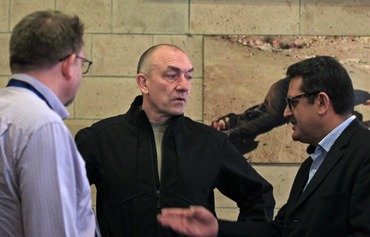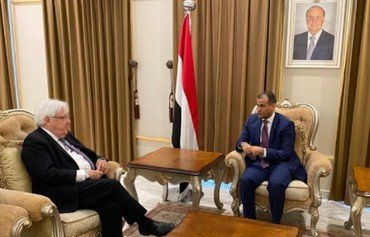The UN efforts aimed at pushing parties to the conflict in Yemen towards renewed peace negotiations are welcome measures that revive hope in stopping the recent escalation, Yemeni analysts told Al-Mashareq.
But they stressed that the Houthis (Ansarallah) will not be able to meet the peace terms while they are under the patronage of Iran, a foreign state.
The UN Security Council on January 30th called for an "immediate cessation" of hostilities in Yemen, saying these were threatening a political process aimed at ending the war.
"The members of the Security Council expressed their serious concern at the significant escalation of violence in Nahm and al-Jawf and its impact on civilians, thousands of whom had been displaced in recent days," the council said.
In a declaration that passed unanimously, the Security Council said it was necessary to maintain a ceasefire in al-Hodeidah called for in a landmark agreement signed in Stockholm, Sweden in December 2018.
Council members also called for an "immediate stop to all intimidation of humanitarian workers" and "safe and unhindered access" in Yemen's north.
The declaration followed an emergency Security Council meeting held January 28th at Britain's request that was held in closed session.
On January 27th, Britain's Ambassador to Yemen Michael Aron told al-Hadath news channel that Britain supports the efforts of the UN envoy to Yemen.
The Stockholm Agreement between the Yemeni government and the Houthis was significant and led to some progress in implementing a ceasefire in al-Hodeidah, he said, but a new comprehensive political agreement is required.
Members of the Security Council have three priorities, he added: ending the escalation in Nahm, restoring calm between Saudi Arabia and the Houthis, and implementing the Riyadh Agreement.
Implementing Stockholm Agreement
The Yemeni government has stipulated that before it enters into negotiations for a comprehensive resolution to the war, the Stockholm Agreement must be fully implemented.
The agreement, signed December 13th between the Houthis and the Yemeni government, calls for a ceasefire in al-Hodeidah and the mutual redeployment of forces from the city and the ports of Salif, Ras Issa and al-Hodeidah.
Yemeni affairs expert Adel al-Ahmadi told Al-Mashareq that calls for peace that ignore UN resolution 2216 remain outside the realm of reality.
The UN resolution calls on all parties to immediately and unconditionally end violence. It calls for the Houthis to withdraw from all areas seized during the current conflict, relinquish arms seized from military and security institutions, and cease all actions falling within the authority of the legitimate government.
The trouble is that the Houthis serve a regional state, al-Ahmadi said, in reference to Iran, and do not have full control over their decisions.
He emphasised the importance of the role played by the Security Council in exerting pressure on all sides, particularly the Houthis, to return to peace talks.
Concessions must be made
Those sponsoring the peace talks must "impress upon all sides the need to make concessions in order to put an end to five years of war and end the suffering of the Yemeni people", said human rights activist Abdul Rahman Berman.
The longer the peace process in Yemen is delayed and the war drags on, the longer the Yemeni people will suffer, he told Al-Mashareq.
"Human rights organisations have recorded all types of violations committed by the Iran-backed Houthis against the Yemeni people," he said, noting that ending the war on fair terms will stop these abuses.
Peace talks "must be approached with seriousness by all sides, and in keeping with the interests of the Yemeni people, not the interests of the negotiating sides", Berman said.
Political analyst Faisal Ahmed meanwhile accused the Houthis of "manipulating the negotiation process" to buy time for themselves, pointing out that "their decision-making process lies with Iran".
It is in Iran's interest that the region "remains unstable", he told Al-Mashareq.
The peace talks are critical if there is to be an end to Yemen's economic deterioration and the suffering of its people, said economist Abdul Aziz Thabet.
This is especially the case in view of the recent actions taken by the Houthis, he told Al-Mashareq, which include the ban on the use of the new currency issued by the Yemeni government.
In order to ensure the success of the comprehensive talks between the government and the Houthis, he added, the Riyadh agreement between the government and the Southern Transitional Council also must be implemented.

![Residents of a makeshift camp for Yemenis displaced by fighting between the Houthis and government forces in the Abs district of Hajjah province are seen here on January 23rd. [Essa Ahmed/AFP]](/cnmi_am/images/2020/02/06/22280-Yemen-Hajjah-Abs-600_384.jpg)






